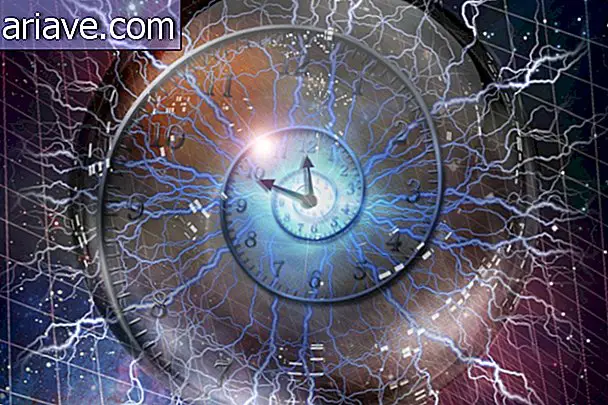Did you know that there are only 17 common expressions of happiness in the world?
Most of us can identify expressions of sadness, fear, anger, boredom and contentment, for example, on the faces of people we know - and sometimes even those we don't know either. But researchers at a US university have decided to find out how cultural differences affect how facial expressions are interpreted around the world, as well as how many of these expressions are universally understood.
What face is that?
According to Sergio Trujillo of FayerWayer, the study, conducted by scientists at Ohio State University, involved selecting 811 words that described emotions and finding portraits of people whose facial expressions matched the feelings they selected.

This image has not been used in the study and is for illustrative purposes only ( Reproduction / Society for Employer Relations)
Then the words were translated into Mandarin, Russian, Spanish, and Farsi, a language that is part of the Iranian languages, and the process of finding portraits with facial expressions matching the words was repeated. The researchers searched the images themselves and selected faces from Asia, Europe, Australia, and the Americas - and did not use photos from Africa because of the limited variety available - bringing together 7.2 million options.
So the scientists threw this dice all into one computer and put the machine to work. Considering previous studies, which had revealed that the muscles of the face allow our faces to have more than 16, 600 variations in shape, the Ohio researchers expected simulations to feature hundreds of common expressions across cultures.
Surprisingly, however, the researchers found that there are only 35 facial expressions that are common across the planet, and of these, 17 convey exclusively feelings of happiness - meaning that happy faces are the most universal in this small group of features that everyone has. interpret the same way.

This image has not been used in the study and is for illustrative purposes only (Reproduction / My Star 93.3)
What about the other expressions, how did they do in the survey? Only 5 of them were recognized as 'anger', 4 as 'surprise', 3 as 'fear' and only 1 coincided with the interpretation of 'disgust'. Moreover, only 8 of the 35 expressions were associated with feelings we harbored for our neighbors - positive or negative and different from those mentioned earlier - and these emotions were restricted to just a few cultures.
So, dear reader, if you come into contact with people from other cultures, especially from some more isolated or “exotic” - compared to Westerners - be careful because the subject may be expressing something completely different than what you are. "Read" on your face, and that can put you in a hell of a lot!











